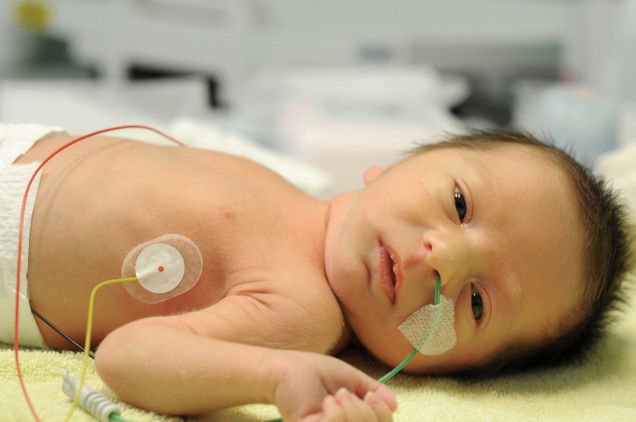Chronic Hypertension During Pregnancy May Lead to Congenital Birth Defects.
 Women who develop hypertension and preeclampsia early in pregnancy may give birth to babies who have increased chances of congenital heart defects and genitourinary abnormalities, an SPH-led study found.
Women who develop hypertension and preeclampsia early in pregnancy may give birth to babies who have increased chances of congenital heart defects and genitourinary abnormalities, an SPH-led study found.
Researchers used data from the Slone Birth Defects Study, a multi-site case-control study at BU’s Slone Epidemiology Center that has been ongoing since 1976. For this study, which examined births during the years 1998–2010, the research team looked at 5,568 cases with birth defects and a control group of 7,253 infants without malformations.
“A major strength of this study is that it is the first to stratify analyses by the type of hypertensive disorder,” researchers said in the paper, published in BJOG: An International Journal of Obstetrics and Gynaecology.
The study confirmed some, but not all, previously reported associations between birth defects and hypertensive disorders that were treated with drugs or managed by other means.
Chronic hypertension that was managed without prescription drugs was associated with a three-fold risk of esophageal atresia, a rare birth defect in which a baby is born without the esophagus connecting to the stomach. Babies born to women who developed preeclampsia as well as chronic hypertension treated without drugs had a higher incidence of ventricular and atrial septal defects.
Even when chronic hypertension was treated with drugs early in pregnancy, babies still suffered higher incidence of a variety of congenital heart defects and hypospadias, a condition in male babies in which the opening of the urethra is on the underside of the penis instead of at the tip. Preeclampsia that was not treated with drugs was also related to both hypospadias and ventricular septal defects.
The study team included SPH researchers Carla van Bennekom, an epidemiologist at the Slone Epidemiology Center; Carol Louik, an assistant professor of epidemiology; Martha Werler, professor and chair of the Department of Epidemiology; and Alan Mitchell, professor of epidemiology and director of the Slone Epidemiology Center. Lead author Marleen van Gelder and Nel Roeleveld of Radboud University Medical Center in the Netherlands were also part of the team.